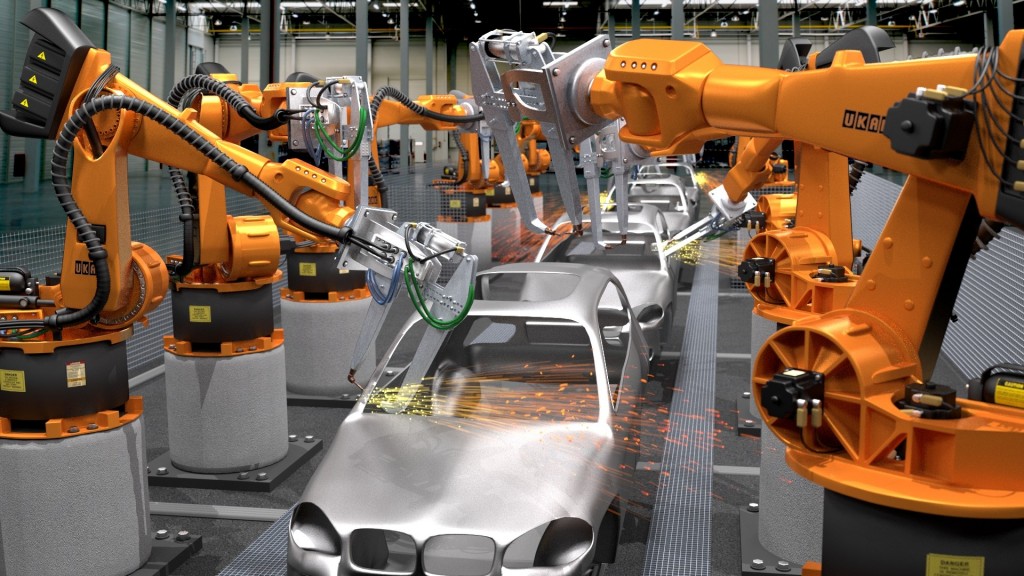

The government is being warned by a leading think tank that robots and workplace automation must be carefully managed, if predictions of mass unemployment and economic disruption are to be avoided.
According to the Institute for Public Policy Research, the government specifically needs to intervene to stop automation driving up wage inequality, although it did state that automation will ‘significantly increase productivity’ and that jobs would be reallocated, rather than lost.
The report comes amid a debate over the future where artificial intelligence (AI), robots, and increasing levels of automation are common-place. Some experts such as renowned physicist Dr Stephen Hawking has previously warned that that artificial intelligence could spell the end of life as we know it on Planet Earth.
The report starts off by stating that despite what some would have us believe, we are not on the “cusp of a ‘post-human’ economy,” where robots do all the jobs that humans currently do.
“Automation will produce significant productivity gains that will reshape specific sectors and occupations,” the report stated. “In aggregate, however, these gains are likely to be recirculated, with jobs reallocated rather than eliminated, economic output increased, and new sources of wealth created.”
However it warned that the challenge for governments and regulators is to ensure that the benefits of automation are fairly shared, although there is no guarantee that this will occur, and it could impact the poorest in society the hardest.
“Managed poorly, automation could create a ‘paradox of plenty’: society would be far richer in aggregate, but, for many individuals and communities, technological change could reinforce inequalities of power and reward.”
And the report did warn that lower-skilled jobs were much more likely to be phased out in the coming decades, with only higher-skilled workers would be able to command better wages.
The sectors most at risk from increasing levels of automation are transportation (where 63 percent of jobs could be automated); manufacturing (58 percent of jobs could be automated); and wholesale and retail trade (where 65 percent of jobs could be automated).
“Automation is likely to lead to the steady redeployment of labour over a period of decades, rather than a sudden and rapid elimination of employment,” said the report. “The task contents of most jobs will evolve, changing the nature of work.”
“In the absence of policy intervention, the most likely outcome of automation is an increase in inequalities of wealth, income and power,” said the report. “The economic dividends of automation are likely to flow to the owners of technologies and businesses, and the highly skilled, as income shifts from labour to capital and the labour market polarises between high- and low-skilled jobs.”
And it said jobs with the highest potential for automation typically have lower wages.
However, automation can potentially deliver a powerful boost to UK productivity, the report stated. “An accelerated trajectory of automation could raise productivity growth by between 0.8 to 1.4 percent annually, boosting GDP by 10 percent by 2030.”
The report also said that “an authority for the ethical use of Robotics and Artificial Intelligence should be established to regulate the use of automating technologies.”
A spokesman for the Department for Business, Energy and Industrial Strategy was quoted by the BBC as saying that the UK’s labour market was “resilient and diverse” and that advances in technology were helping to “bring new jobs”.
“The government is committed to ensuring that the UK is to able to seize the opportunities and overcome the obstacles that exist in this area,” he said.
“Government is working closely with industry to ensure the benefits of new technologies are felt across different sectors of the economy up and down the country, while creating new high-skill, well-paid jobs,” the spokesman said.
The report comes amid a debate as to the possible uses of artificial intelligence and robots in the years ahead.
Professor Stephen Hawking has previously said that a thinking machine could “redesign itself at an ever-increasing rate” and “supersede” humans.
Elon Musk, the South Africa-born inventor and entrepreneur best known as the co-founder of PayPal and chief executive of both SpaceX and Tesla Motors, has called AI “our biggest existential threat”.
And Microsoft co-founder Bill Gates has said he was “concerned” about AI and that he agreed with Musk’s view.
In October Google’s DeepMind division announced a significant breakthrough after its AI system became even smarter without any human input at all, after it learnt how to defeat the leading system playing the ancient Chinese game of Go.
Put your knowledge of artificial intelligence to the test. Try our quiz!
Apple reportedly working on lighter, cheaper Vision Pro, another model that links directly to Mac…
OpenAI says GPT-4.1 model family can understand prompts with up to 1 million tokens, features…
Blue Origin jaunt sends Jeff Bezos fiancée Lauren Sanchez into space along with Katy Perry…
Meta to use public posts from EU users on Facebook, Instagram to train AI models…
Apple tops smartphone sales worldwide in first quarter after iPhone 16e launch, in spite of…
Intel sells 51 percent of programmable chip unit Altera to Silver Lake Partners in deal…